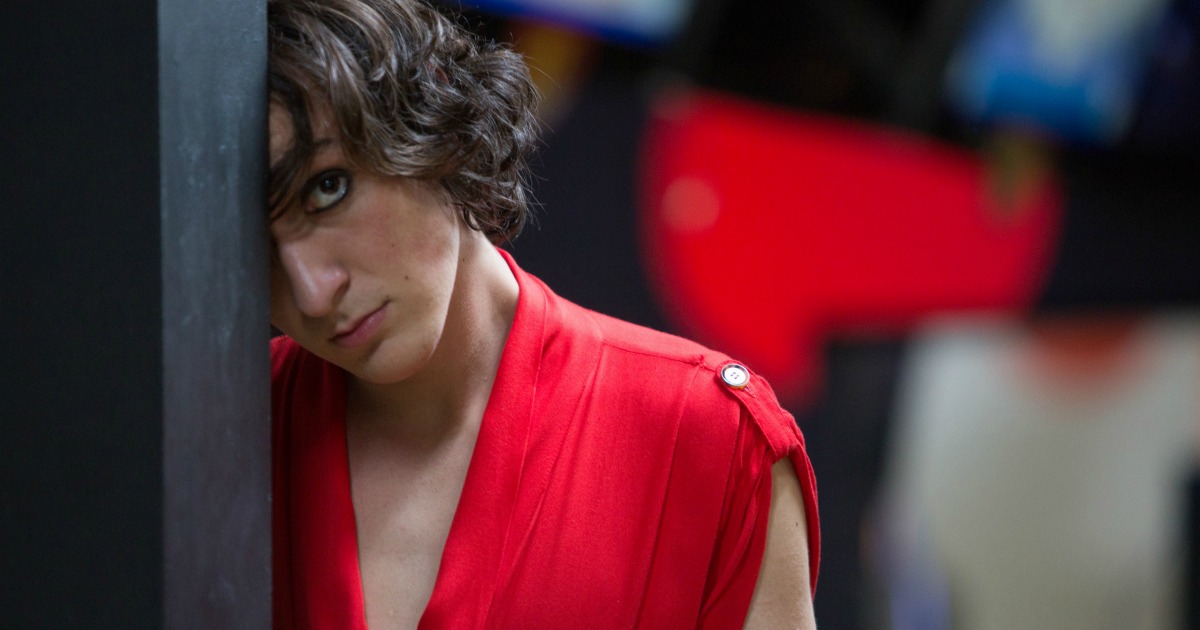Coming of age films come a dime a dozen. Seemingly once a week, a new film looking into a character’s journey from adolescence to young adulthood arrives, with varying degrees of success and intellectual import. However, few are able to balance on that line between genuinely enthralling drama and maudlin melodrama quite like writer/director Anna Muylaert’s Don’t Call Me Son.
The story found within the tautly wound 82 minute run time of Muylaert’s latest film, Son seems like one you’d find in an arch melodrama, but is in actuality a decidedly singular deeply universal journey through one person’s coming of age. Pierre (newcomer Naomi Nero) is an androgynous, handsome 17-year-old who is as tall as he is mysteriously alluring. Already trying to decipher just exactly who he is as made clear by his sexual experimentation with both men and women as well as his affinity for a good, lace G-string and a sexy miniskirt, the self assured Pierre seemingly has his world upended when a DNA test reveals that he was in fact stolen from his biological mother by a woman he has since grown up with. Jumping from a working class, single parent household to a stuffy, bourgeois couple, Pierre’s way of life comes under attack when his new “parents” appear to be less than excited by his lack of enjoyment in more traditionally masculine ventures.
With the majority of the film resting on the shoulders of Nero, the emotional heights reached by the picture are a tribute to the fantastic performance given. The character of Pierre is an impossibly magnetic one, be it his mysterious eyes or the portrayal of his fluid identity, proving him to be at once a singular character and yet shockingly relatable. And the performance given is one of nuance and realism. Completely lived in, Nero’s performance is a tender and textured glimpse into the fluidity of identity during adolescence (and adulthood, for that matter). Pierre battles with his new parents, particularly his antagonistic, homophobic “father” whose own masculinity is about as fragile as it is rooted in traditional values and interests. There’s also actress Dani Nefussi whose dual performances as both mothers in question here hints at a bit of formal experimentation that helps liven up a relatively brisk motion picture.
And the experimentation bleeds into the aesthetics here as well, as Muylaert’s film may not get the tag of “experimental” but there are brief bursts of energy that make this a superbly engrossing bit of craftsmanship. Cinematographer Barbara Alvarez (DP on Muylaert’s last film, The Second Mother) is at the top of her game here, her photography evolving with the various emotions and class landscapes found within the story. Be it the warmth found during the opening few beats to the abrasive chill found in the stuffy bourgeois home of Pierre’s new “family,” the film’s changing sense of place and space is central to its thematic resonance and Alvarez is partly the reason why. Muylaert takes a great deal from modern neo-realists like the brothers Dardenne, and while the camera work feels rooted in that stayed tradition, there’s an energy and vitality that those films in many ways lack thanks to its quietly charismatic lead that helps elevate the film. Also the use of focus, specifically during a dinner scene, helps evoke the sense of isolation our lead feels. It’s small moments like these that make this a real gem.
Again, at roughly 80 minutes, the film is almost too brisk for its own good. There are a handful of subplots here (including one involving his sister) that are all but dropped to focus solely on our lead character, and not always for the better. However, this is a taut, assured meditation on both one person’s coming of age as well as modern classism in Brazil, and a film that will hopefully find an audience on the art house circuit.




